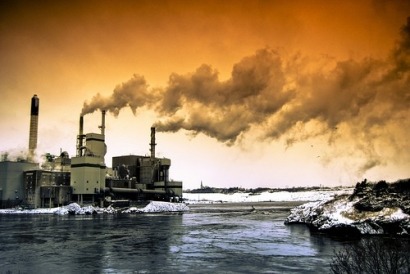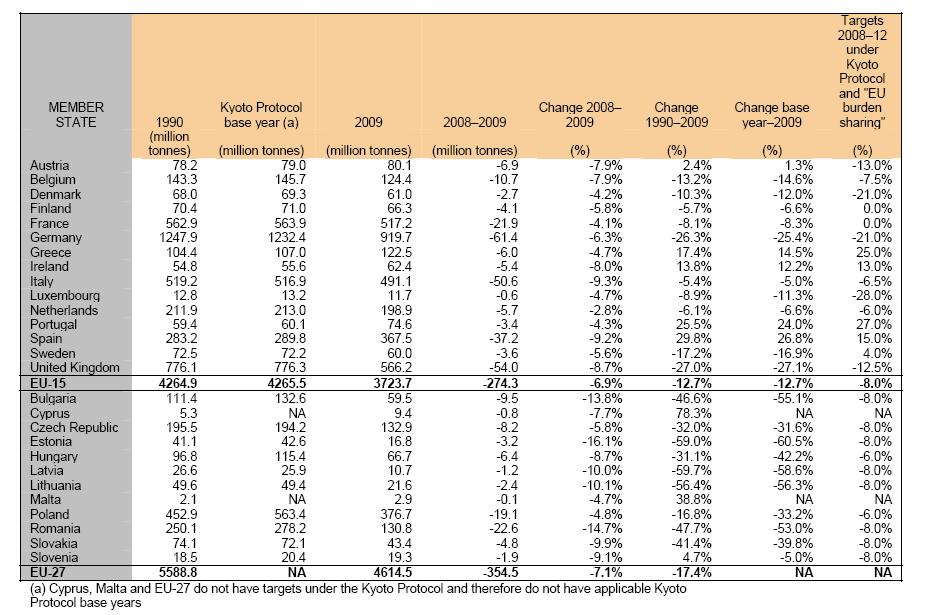
“Although much of the decrease in greenhouse gases is due to the recession, we are starting to see the results of many EU and Member States’ proactive policies in renewable energy. We hope that policy makers continue to build on this success to cut emissions further,” comments Prof. Jacqueline McGlade, Executive Director of the EEA, in relation to the release of the EAA’s latest report entitled "Why did greenhouse gas emissions fall in the EU in 2009?".
The 2009 recession affected all economic sectors in the EU, leading to a decrease in energy demand. Consumption of fossil fuels fell compared to the previous year, mainly for coal, which in turn led to even steeper emission reductions. In relative terms, the largest emission reductions occurred in manufacturing industries and construction, and in public electricity and heat supply. Despite the relatively cold winter of 2009, emissions also fell in the residential sector.
Alongside falling energy demand linked to the economic recession, there was a strong growth in renewable energy deployment, particularly biomass, wind and solar, leading to a significant increase in the share of renewables in final energy in the EU. Primary energy consumption of renewables increased by 5.8% in the EU-27, according to Eurostat energy balances for 2009.
Key findings for 2009
- The economic recession and the increase of renewable energy in final energy consumption were the main factors behind the fall in emissions in 2009.
- In the EU-27, total GHG emissions decreased by 17.4 % in the EU-27 between 1990 and 2009 (974 million tonnes carbon dioxide equivalent, or CO2-e). In line with EEA estimates made last year, emissions decreased by 7.1 % (-355 million tonnes CO2-e) between 2008 and 2009.
- In 2009, total GHG emissions in the EU-15[1] were 12.7 % (542 million tonnes CO2-e) below the base year level. Emissions decreased by 6.9 % (274 million tonnes CO2-e between 2008 and 2009.
- Emissions of GHGs from international aviation and shipping decreased by 8.6 % in the EU-27 between 2008 and 2009. These two sectors currently represent 6.3 % of total GHG emissions.

Early indications of 2010 figures
The most recent data available for the EU GHG inventory is for 2009. Verified 2010 emissions from the EU-ETS point to a 3% emissions increase over the course of the year, which is still far below pre-recession levels. The EU ETS covers more than 12,000 power plants and manufacturing installations, or approximately half of all emissions. This rebound in emissions partly reflects the economic recovery.
The Greenhouse Gas Inventory is an annual report compiled by the EEA covering emissions of carbon dioxide, methane, nitrous oxide and fluorinated gases from 1990 to two years before the current year. It is the official submission of the EU to the United Nations Framework Convention on Climate Change. In autumn, the EEA will publish early estimates for the 2010 emissions in the EU, and also a Trends and Projections report, looking ahead to assess progress against emissions targets.
For additional information:

